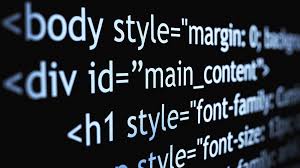Will gamification be the future of education?

The world of gaming has been intertwined with the world of education for a long time.
“Johnny’s test scores are suffering because he is up all night playing those video games.”
“Tessa’s grades are starting to slip because she’s spending too much time online playing interactive games with her friends.”
The two worlds have seemingly never had a quality relationship. The world of gaming has had a stranglehold on the attention of school age children for years. The world of education has consistently looked down on these games, sighting their presence as a destructive deterrent to a quality education.
Rather than pitting these two worlds against each other, what if we entangled the two? What if we found a way to bring gaming to education and vice versa?
The truth is, it’s already happening. The system of education is becoming more and more gamified every day. Gamification is simply bringing components of gaming-scores, rewards, and levels to non-gaming settings. In the classroom, this is becoming more and more prevalent.
For instance, in the Uncommon Schools system, a coalition of charter schools spread across the Northeast, a paycheck system is used to monitor student behavior. These “scholar dollars” are given or taken away based on good or poor behavior. If a student answers a question with particular poise or goes out of their way to help another student, they are rewarded with a few scholar dollars. If the student says something inappropriate to a teacher or student, then some scholar dollars get taken away.
At the end of each week, students receive a paycheck and a register detailing how they earned or lost money. These paychecks can be used for items in the school store or experiences that are auctioned off a few times a year. This gamified system shows rewards and demerits based on how well the students can behave; or how well they “play the game.”
If we zoom out and look at a bigger picture than just this community of charter schools, we can see even more gamification taking place. Interactive educational programs like Khan Academy and IXL are being used in many schools around the world. Khan Academy was originally a resource of great content videos. It had, and still has, well-done videos for math, science, history, art, and more. What the Academy has infused into their videos, though, has gamified their website. Each video is now paired with interactive questions that give students points and rewards based on their success.
Similar to Khan Academy’s new interactive features, IXL.com boasts a plethora of subjects with questions that provide instant feedback. With each question that’s answered correctly, the student can earn points. With enough points earned, students can earn one of many trophies within the program. Students of all ages love the interactivity and instant feedback these programs provide. It allows them to be independent, but also realize how much they’re achieving as they go.
These gamified elements don’t have to be grandiose; they can be subtle implementations. It could be a group competition in class or a simple reward given to a student who gives thoughtful answers. Uncommon Schools, IXL, and Khan Academy aren’t the blueprint; they are just examples. Gamification is bringing education to students in a way that is accessible to them. They understand the concept of rewards and achievements through the games they play outside of school, so as schools begin to marry the concept of gaming and education, they may find that more students are receptive to their instruction.
The answer to the question posed at the beginning of this article was if gamification will be the future of education. It isn’t the future; it’s already here. There will certainly be more implementation as time passes, but the movement has begun. Gaming and education, it seems, are finally getting along.





